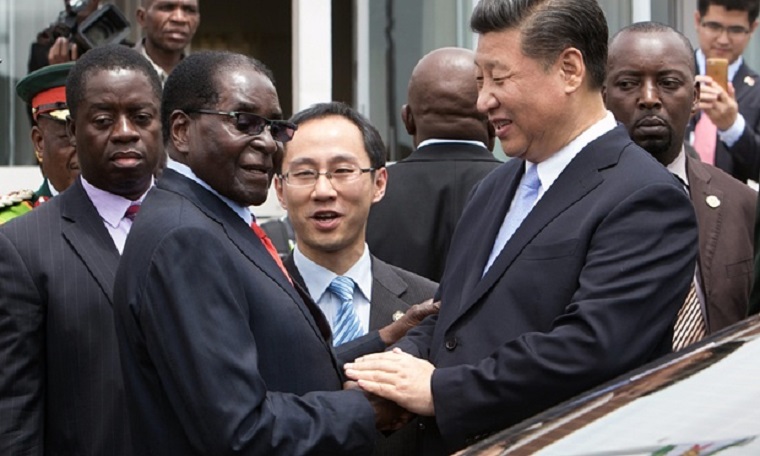Zimbabwean politics is at a critical moment. Its 92-year-old president, Robert Mugabe, having led the country for more than 30 years, is vowing to run for re-election in 2018. However, his political party, ZANU-PF, is fracturing.
His vice president, Emmerson Mnangagwa, has garnered many followers in the party and is expected to challenge Mugabe in the presidential election. His wife, Grace Mugabe, has also received factional backing within ZANU-PF and is interested in competing for the presidency.
The factional fights within ZANU-PF have been made public as both sides pointed fingers to each other in front of the press and now on social media. Even Mugabe found himself powerless to dismiss their jostling. His repeated calls to end factionalism have been unheeded. But he may also have benefited from pitting one faction against another while he retains firm control of power.
Meanwhile, the Zimbabwean economy is in a bad shape. Its currency was so worthless that it was ditched in 2009 to be replaced by the US dollar and South African rand, among others. With 90 percent of the population without formal employment, the ruling party has seen social unrest on the rise and therefore has to rely more on political violence to crack down on protesters.
Due to its poor human rights record, Zimbabwe has few friends in the world. China is one of the few. In fact, it claims to be Zimbabwe’s “all-weather” friend, offering generous grants and investing heavily to boost the Mugabe leadership. But with Zimbabwe’s political future uncertain, China is walking a fine line as to taking sides with political factions and keeping China-sponsored assets safe from the threat of political turmoil.
Despite Zimbabwe’s uncertainties, China did not hesitate to grow economic and political connections with the country. In fact, while Zimbabwe was under EU and US sanctions for its refusal to allow European observers in the 2002 election and for its brutal handling of protesters, China invested in at least 128 projects in the country from 2000 to 2012.
Zimbabwe is among the top three Chinese investment destinations in Africa, attracting a total FDI of more than $600 million in 2013. Moreover, China was Zimbabwe’s largest trading partner in 2015, buying 27.8 percent of the country’s exports. Chinese companies have also been actively engaged in contractor services in telecommunication, construction, irrigation, and power.
Continued next page
(158 VIEWS)
